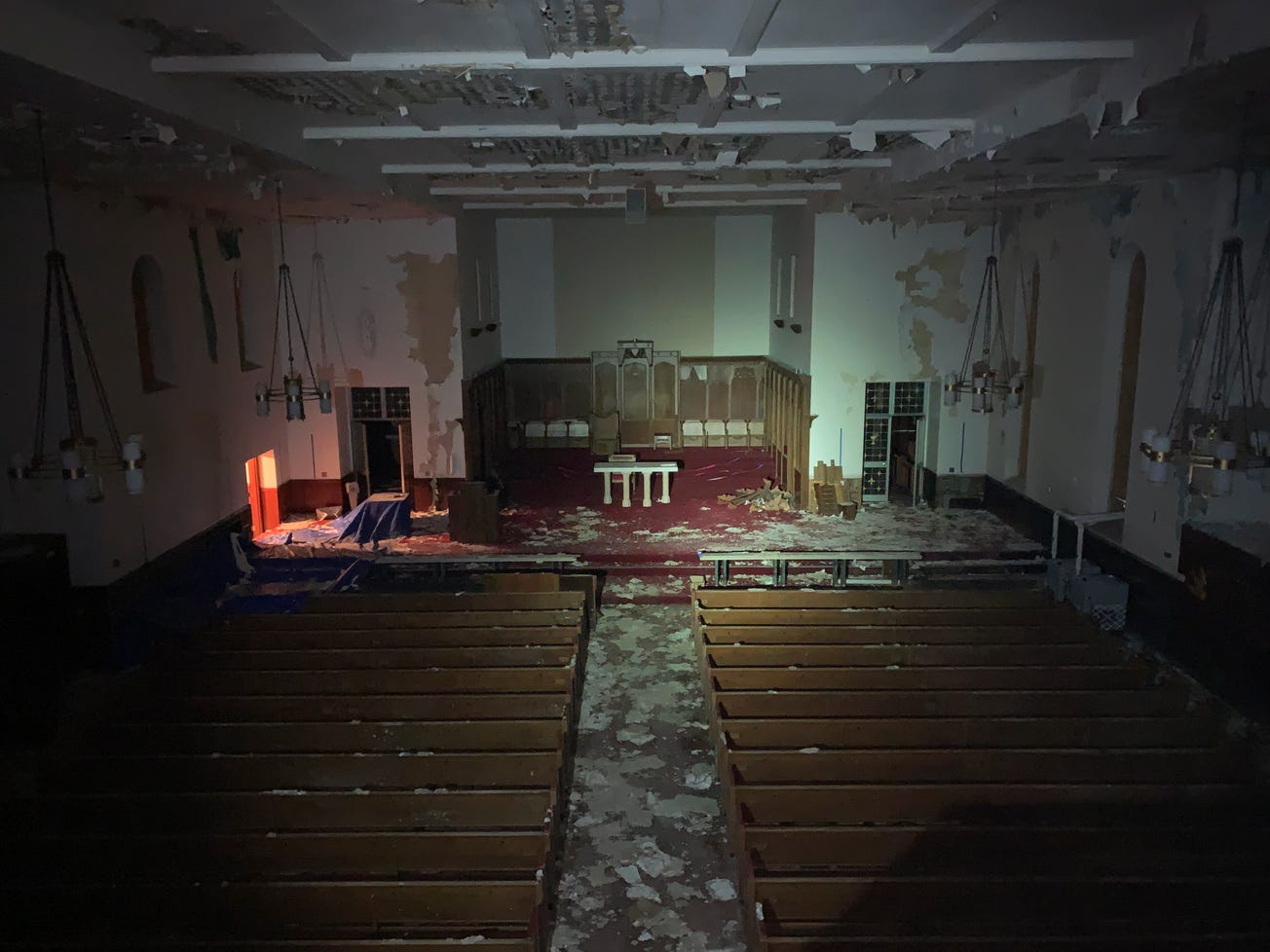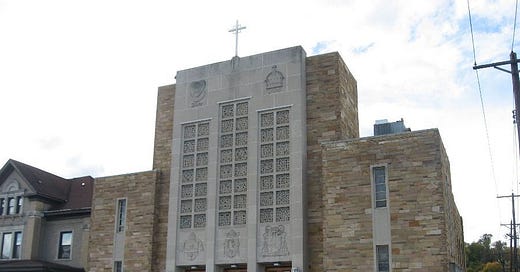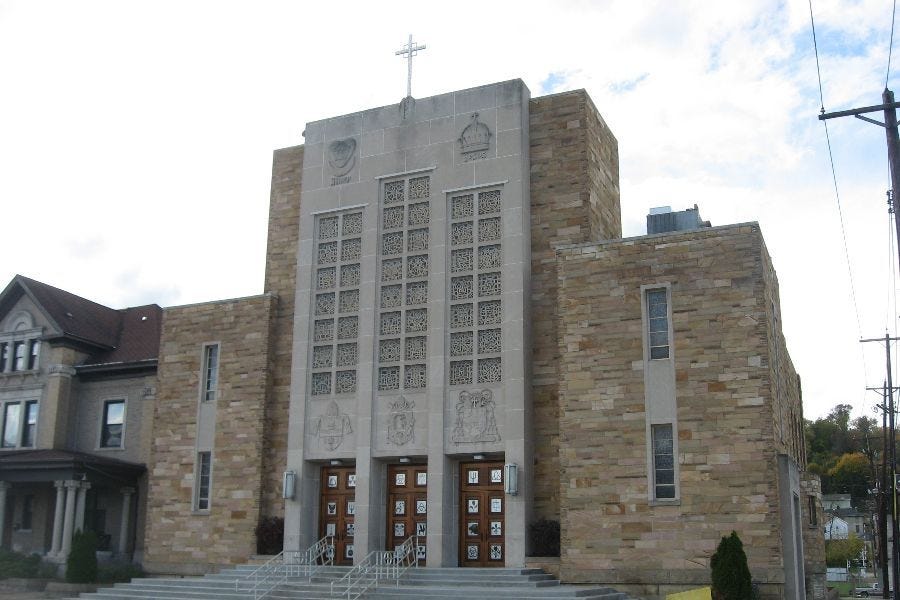
Steubenville diocese to face 'health audit' after merger fracas
An audit of the Diocese of Steubenville's financial viability comes after a fracas over the prospect of a diocesan merger.
The Diocese of Steubenville will undergo an external audit of its financial viability, as part of ongoing deliberations regarding the prospect of merging the diocese into a neighboring Ohio diocese.
Writing in the Steubenville Register on Thursday, Bishop Jeffrey Montforton explained to Catholics that “a Diocesan Health Audit has commenced,” as the diocese is “looking at options” regarding its future.
The audit, Monforton explained, will be conducted by public accounting firm Schneider Downs, which also assessed the diocese after diocesan officials were suspected of embezzling in 2018.
While the bishop did not explain what elements of diocesan finances would be assessed, he did state that the process would be “facilitated” by Archbishop Dennis Schnurr of Cincinnati, along with three diocesan finance officers, from Cincinnati, Columbus, and Youngstown.
Jennifer Schack, a spokesperson for Schnurr, told The Pillar Thursday afternoon that Schnurr was asked “to facilitate a Diocesan Health Audit,” which would be “conducted in communication with the Holy See.”
Schack declined to say who had asked Schnurr to oversee facilitate the audit, but she did clarify that Scnurr’s role was “to put a mechanism in place to study the financial viability of the Diocese of Steubenville,” which was completed “with Bishop Monforton’s agreement.”
“The study will speak for itself,” Schack added.
Dino Orsatti, a spokesman for the Diocese of Steubenville, told The Pillar Thursday that he believed the audit was called for by Vatican officials, presumably at the Dicastery for Bishops.
News of the study comes after a fracas in the Diocese of Steubenville last year over the prospect that it might be merged into the Diocese of Columbus.
Monforton announced the plan for a merger to priests and employees of the Appalachian diocese Oct. 10, shortly after the plan was reported by The Pillar.
But the bishop faced sharp pushback from priests and laity in the Steubenville diocese after the plan was announced, with priests arguing that neither they nor the diocesan finance council had been consulted about the future of the diocese.
While Monforton said the move was needed because of the diocese’s shrinking population, number of priests, and poor financial outlook, some Steubenville priests argued that the diocese had relatively strong vocations, as compared to its diocesan neighbors, and that its financial prospects would improve with a commitment to evangelization in the area.
Some priests, and a former diocesan employee, told The Pillar that they believed that diocesan resources were mismanaged under Monforton’s tenure, and that new leadership might give the diocese new life. Other priests said that while they should have been consulted about the prospect of a merger, the outcome itself might be for the best.

But laity in the diocese held prayer rallies and demonstrations in the city of Steubenville last October, protesting the planned move.
In early November, The Pillar reported that 18 priests and deacons of the Steubenville diocese had written to U.S. bishops’ conference leaders Oct. 28, asking that a planned USCCB consultative vote be delayed. The vote was a required step before the merger could obtain Vatican approval.
The march toward a merger came to a halt Nov. 7, when Monforton told priests that he had asked the USCCB to cancel the vote.
“I have requested the United States Conference of Catholic Bishops to remove discussion of a merger and subsequent vote from the plenary session’s agenda at this time. There will be no vote next week,” Monforton wrote in a Nov. 7 letter to Steubenville's priests, which was obtained by The Pillar.
“Further discussion regarding the Diocese of Steubenville’s future will be conducted at the diocesan level,” the bishop added.
After the USCCB vote was delayed, a memo was circulated to priests from the vicar for clergy in the Diocese of Columbus, which told priests that “the likelihood is still very strong that the merger will eventually happen.”
The memo said that problems in the Diocese of Steubenville were more than “a case of mismanagement,” adding that “economic and demographic forces beyond the diocesan scope ... are driving the problem.”
The Diocese of Columbus also reported that its diocesan college of consultors voted unanimously to recommend the merger.
For his part, Monforton told Crux last week that while “everything is on the table,” for the future of the diocese, a merger is not inevitable.
The bishop added that “I’m going to see what the future holds at this point, so I’m not going to say I’m holding steadfastly towards a merger.”
Priests in the diocese say there has been little evidence of local discussion about the issue since November, until the diocesan finance council was informed last week about the planned “health audit” of the diocese.
Sources close to the diocese say it is not clear what information is included in the audit, and few diocesan officials have reportedly been contacted regarding the review.
But if the request to audit the diocese did come from Vatican officials, that could suggest that concerns raised by priests about both the merger and the health of the diocese are being taken seriously at the Holy See.
Schack told The Pillar that neither Schnurr nor the Cincinnati finance officer are expected to be involved in assessing the results of the study, or the future of the Steubenville diocese.
Schnurr “has not been asked for his opinion, by either the Holy See or the nunciature,” about the future of the diocese, she said, adding that “a metropolitan archbishop does not have ordinary jurisdiction in a diocese outside of his own.”
“The CFO of the Archdiocese of Cincinnati also has no role in the discernment of the future of the Diocese of Steubenville. His role is to assist in the audit process.”
📰
Whatever the outcome of the audit, Monforton himself is facing several issues in the Steubenville diocese.
The Pillar has reported that the bishop is subject to two separate Vatican-ordered Vos estis lux mundi investigations for his handling of sexual abuse allegations. Sources in the diocese told The Pillar this week that investigators were still gathering information in January for those investigations.
Monforton is also facing criticism in Steubenville for a third case, in which a priest impregnated a teenager after diocesan officials were warned about his inappropriate behavior toward her.
The Pillar confirmed that while diocesan officials said that priest - Henry Foxhoven - began counseling during a brief 2017 suspension, he actually had only one counseling session in September 2018, the month before he was arrested on sexual assault charges.
Monforton’s letter did not indicate when the audit is expected to conclude, explaining instead that a “timeline has not yet been established for potential results for the audit.”
“It is on me to make certain we do the right thing for the people of God,” the bishop added.







